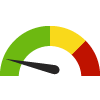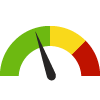Our Story
In October 2013, nine visionary organizations came together to incorporate a new entity called the North Jersey Health Collaborative (NJHC). Having seen the division and duplication that existed between many assessments, planning and implementation activities across the county, the group set out to find ways to coordinate the efforts and resources of public health, healthcare, and other organizations to maximize our impact on the health status of our communities. The NJHC, an independent 501(c)(3), was established as the backbone for this collective effort of "building capacity to improve community health."
From that humble beginning, more than 100 organizations across multiple sectors have signed on to partner with NJHC with a list of funding partners growing to over 20. Together our partners are working to create "healthy communities - healthy people" in Morris, Passaic, Sussex, Union & Warren counties.
In October 2014, NJHC officially launched the NJHealthMatters web portal to house and share data and resources with the community.
In 2015, for the first time, NJHC pulled together those partners across the region to conduct our first shared community health assessment. With unprecedented input, a list of data-informed and community-identified health issues were developed and prioritized. Click on Plans & Priorities and select a county to view the priority issues. Workgroups were established for each priority issue in January of 2016. Using a process informed by the Kansas Health Institute and other reputable sources in public health, the process led to the development of shared plans with measureable strategies for ongoing monitoring and evaluation.
In 2018, taking what we learned from our first assessment and health improvement plans, the NJHC partners set out to collaborate on the second phase of the community health needs assessment. An analysis of the secondary data indicators on this site and the results of our first Community Voice Survey informed the on-going assessment and development of strategies. This work in still underway; the new iteration of our county-specific community health needs assessments and community health improvement plans will be shared on this site by the end of 2019.
In 2019 the NJHC Morris, Passaic, Sussex, Union and Warren County Committees, under the leadership of our Executive Director and our volunteer county chairmen and women, reviewed the Community Health Needs Assessments and identified 4 to 6 indicators for each County CHIP (Community Health Improvement Plan). The CHIP includes: Healthy Aging, Transportation, Access to Care, Mental Health and Substance Use, Chronic Disease, Obesity, Nutrition, Physical Activity, and Economic Stability and Social Determinants of Health.
2020 Welcomed NJHC President Sherilyn Cognetti. As the COVID-19 pandemic put a strain on our health departments, healthcare, and communities, the NJHC partners continued taking action steps to support the community and our local health departments and identified social determinants of health. 2021 finished strong with the Community Health Needs Assessments completed in all 5 counties.
Our County Committees and Strategic Workgroups work together within each county and across counties to share best practices and deliver programs, services, resources, and information that will improve health outcomes for North Jersey Residents.
What we do
Shared Data for Collective Impact
The North Jersey Health Collaborative is an independent, self-governed 501(c)(3) organization with a diverse set of partners representing health care, public health, social services and other community organizations.
Our core function is a shared process of community needs assessment and health improvement planning to identify the most pressing health issues and facilitate the development of collaborative action plans to address them.
By working together in unprecedented ways, our partners are strategically aligning their efforts and resources to achieve collective impact on the health of our communities, accomplishing together what we could never do alone.
A health indicator is a measure designed to summarize information about a given priority topic in population health or health system performance. Health indicators provide comparable and actionable information across different geographic, organizational or administrative boundaries and/or can track progress over time.
We provide over 150 indicators, along with comparisons, trends and related data.
Explore data within one of our topic areas:
FEATURED RESOURCES
We've drawn together a diverse collection of professional resources for researchers, policy-makers, advocates, and other engaged citizens.
- Promising Practices - A database of documented approaches to improving community health and quality of life.
- Funding Opportunities - Regularly updated; opportunities are automatically removed when they expire.
- Location Report Builder - An easy way to tell the story of your community in a beautiful and simple report.
- Help Topics - Learn how to get the most out of this site.
- Register Ready - New Jersey’s Special Needs Registry for Disasters
COVID-19 Daily Average Incidence Rate
7.33 cases per 100,000 population
This indicator shows the population-adjusted confirmed daily average new COVID-19 cases recorded in the preceding 7 days (for example, Jan 31 includes the average daily incidence rate between January 25 - January 31, 2020).
Numerator = daily average of confirmed new cases in preceding 7 days
Denominator = total population of the locale
Data Source: Healthy Communities Institute

By the Numbers: Access to Care
Access to comprehensive, quality health care services is important for promoting and maintaining health, preventing and managing disease, reducing unnecessary disability and premature death, and achieving health equity for all Americans. This topic area focuses on 3 components of access to care: insurance coverage, health services, and timeliness of care. When considering access to health care, it is important to also include oral health care and obtaining necessary prescription drugs.






